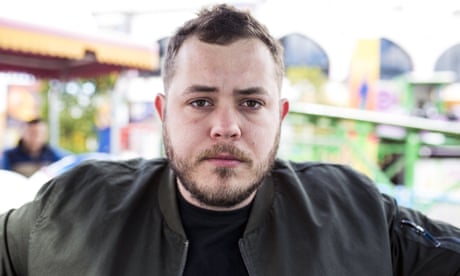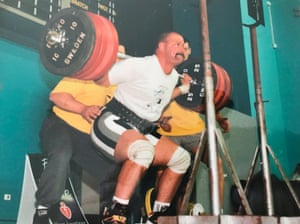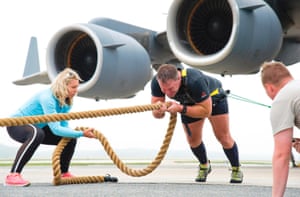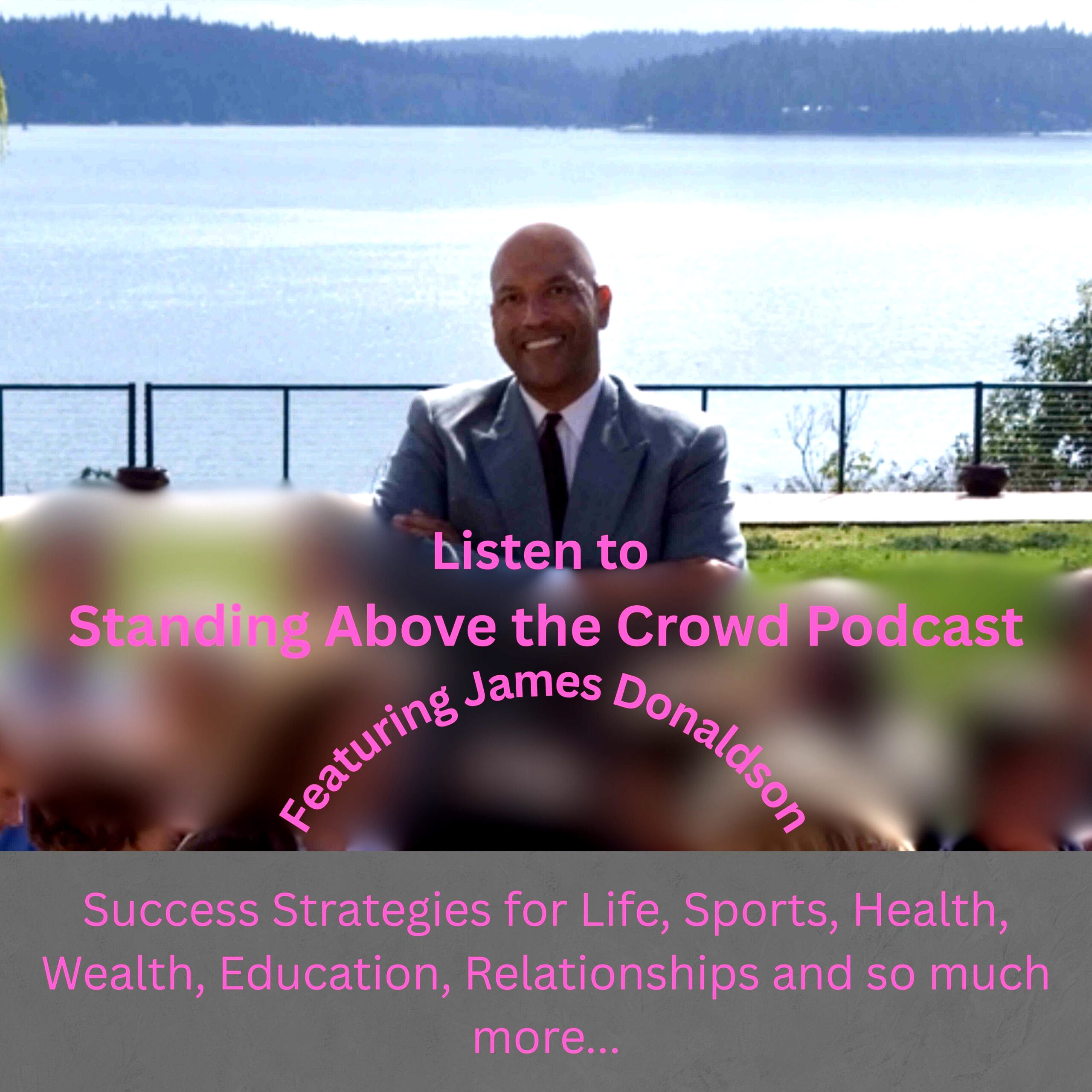#Mental welfare is neglected because police are perceived to be strong, unflappable, unshakable. This can, and must, be fixed
I’ve always been a large person. I’m 195cm tall and weigh 130 kilos, although at my largest I was over 160kg. I have represented Australia in track and field; I bobsledded for the country at the 1992 Winter Olympics; I played football for the University of Hawaii. In 1997, I was declared Australia’s strongest man. I could single-handedly pull a 201-tonne steam train.
But physical strength and #mentalhealth strength are vastly different. And after decades spent rising through the ranks of the Australian police force – fighting online child exploitation, serving as an officer in Afghanistan, having my compound attacked by the Taliban, and an aeroplane targeted by a missile – it was my #mentalillness that almost took my life. #Suicide, I thought, was my way out.
Mine is not an isolated story.
JamesDonaldson notes:
Welcome to the “next chapter” of my life… being a voice and an advocate for #mentalhealthawarenessandsuicideprevention, especially pertaining to our younger generation of students and student-athletes.
Getting men to speak up and reach out for help and assistance is one of my passions. Us men need to not suffer in silence or drown our sorrows in alcohol, hang out at bars and strip joints, or get involved with drug use.
Having gone through a recent bout of #depression and #suicidalthoughts myself, I realize now, that I can make a huge difference in the lives of so many by sharing my story, and by sharing various resources I come across as I work in this space. #http://bit.ly/JamesMentalHealthArticle

Read more
In July 2019 it was reported that since February 2017, five officers of the Australian federal police had taken their lives at work. The tragedy extends beyond our borders: the latest international report notes #policeofficers suffer post traumatic stress injuries (PTSI) and operational #stress injuries (OSI) at more than five times the rate of the public average. Police and law enforcement around the globe are suffering, plagued by a #mentalhealth crisis due to a culture that must change.
It’s easy to find the root of the problem. Law enforcement culture rewards strength, stoicism, resilience and self-reliance, as well as controlled emotions, integrity, and the ability to handle complex problems. These values discourage help-seeking behaviour. As a cop, if you ask someone to help fix a problem, you get the sense of having “lost control”.
Cops are perceived by the community to be strong, unflappable and unshakable. It’s an unrealistic stereotype, but the pressure to live up to it is enormous. As a result, we have policemen and women who feel isolated. They suffer in silence because they’re terrified that admitting to having a #mentalhealth condition could harm – or perhaps end – their careers.
A cop isn’t likely to cry out for help. For some, death by #suicide is seen as the only escape.

The fact the policing profession revolves around an unhealthy sense of distrust doesn’t help. It was drummed into my class on our first day at the AFP college 34 years ago, when our drill sergeant demanded we “distrust and question everything”.
The “deficit of trust” eventually permeates all facets of your life – one of the great ironies of #police life. While I’d expect my partner to have my back in a life or death situation, I couldn’t bring myself to trust that same person with the secret that I’d been diagnosed with PTSI.
I loved my job, but it exposed me to terrible things – the greatest nightmare being the evil perpetrated by paedophiles. I did my utmost to protect our broader community, but without realising it, the trauma of my job ate away at me until I was left psychologically vulnerable and exposed. I suffered a complete functional impairment.
But when my GP diagnosed me, I was terrified that my identity – and my job – would be stripped from me. I forced the doctor to take back the script for the medication he’d prescribed, and expunge my diagnosis from my records. I thought it would kill my career.
But inside I was suffering. In the ensuing years I hit such a low point I contemplated suicide simply because I didn’t feel I could trust my work colleagues, friends or even my family. I wasn’t sure where to go for help. I didn’t know who was there for me. The voice inside me promised that my misery could be ended by taking my life. Thankfully I didn’t.
I instead emailed my story to all 6400 members of the Australian federal police. Many were shocked, but I was floored by the support I received. Commissioner Andrew Colvin was outstanding. Rather than use my “confession” as a reason to condemn me, he – and other high ranking officers – provided solid support and understanding. Stepping forward did not hinder my career.
There are many good things being done to support #police and #police #veterans, such as Soldier On and Fortem #Australia. But if we’re going to truly make a difference in halting the increasing #suicide rate among #police ranks, things must change:
- Elected leaders must implement presumptive legislation to allow affected police to immediately start treatment;
- Police insurance providers need to cease their adversarial approach to police health and wellbeing, which forces so many of us to continue reliving our trauma in order to prove our #mentalhealth injuries;
- Policing agencies must institutionally strengthen their organisations to accommodate, accept and normalise the notion that anyone who takes on a career in policing will, without doubt, be mentally and emotionally impacted by the traumas they’re exposed to;
- More inclusive practices are required to support the family and loved ones of those who are affected;
- Police forces in Australia must re-examine their collective idea of what “makes” a cop. It’s now time to accept they’re everyday humans dealing with the ugliest examples of inhumanity.
Read more
Addressing these points will go a long way to overcoming the high levels of distrust within policing, when members need to report their #mentalhealth issues. It would also help diminish the stigma surrounding #mentalillness within the profession.
The cost of wearing the badge to protect and serve the community comes at a cost. But it is time that those in charge realise the human cost greatly outweighs the financial costs of introducing change.

• Crisis support services can be reached 24 hours a day: Lifeline 13 11 14; Suicide Call Back Service 1300 659 467; Kids Helpline 1800 55 1800; MensLine Australia 1300 78 99 78; Beyond Blue 1300 22 4636
• Grant Edwards is a former high-ranking #Australian #policeofficer. His book The Strong Man is out now through Simon & Schuster



